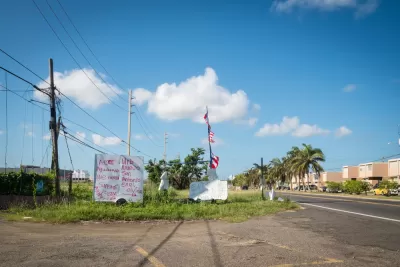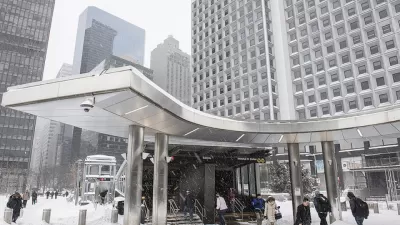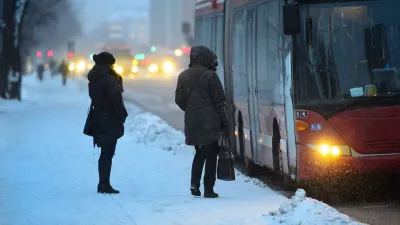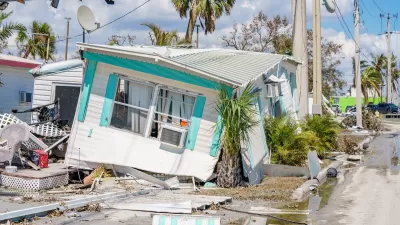According to new research, the tragic impact of Hurricane Maria lingered for months after the storm hit Puerto Rico on September 20, 2017, and at far greater magnitude than the federal government has acknowledged.

"Two months after Hurricane Maria ripped through Puerto Rico, scores of people were still dying in its aftermath," reports Milton Carrero.
Alexis Santos, a demographer at Pennsylvania State University, conducted the analysis with data from the Puerto Rico Institute of Statistics. Santos places the total number of deaths in September, October, and November at 1,230.
The number of deaths caused by Hurricane Maria raises troubling questions about the federal government's approach to the storm. As Carrero explains, "[w]hen President Trump visited Puerto Rico two weeks after the storm, he used the official death toll of 16 as evidence that his administration had been highly effective in dealing with the tragedy." The federal government has since adjusted the death toll, eventually maxing out the number at its current level of 64 on December 9. Obviously, Santos's research stands as a stark rebuttal of the government's narrative about the fallout from the storm.
The federal government's lack of attention to the lasting effects of the storm also stand in contrast to the creation of the Mayor Exchange, which Kristin Musulin reports will "connect mayors of U.S. mainland cities with mayors in Puerto Rico for guidance and support in rebuilding the island following Hurricane Maria."
"An estimated 40 mayors are expected to participate in the Exchange in the coming weeks, including Chicago Mayor Rahm Emanuel, Houston Mayor Sylvester Turner and Miami Mayor Francis Suarez," according to Musulin, New Orleans Mayor Mitch Landrieu has already been paired with Ponce Mayor Maria Meléndez.
FULL STORY: Puerto Rico deaths related to Hurricane Maria continued for months after the storm, data suggest

Alabama: Trump Terminates Settlements for Black Communities Harmed By Raw Sewage
Trump deemed the landmark civil rights agreement “illegal DEI and environmental justice policy.”

Study: Maui’s Plan to Convert Vacation Rentals to Long-Term Housing Could Cause Nearly $1 Billion Economic Loss
The plan would reduce visitor accommodation by 25% resulting in 1,900 jobs lost.

Planetizen Federal Action Tracker
A weekly monitor of how Trump’s orders and actions are impacting planners and planning in America.

Waymo Gets Permission to Map SF’s Market Street
If allowed to operate on the traffic-restricted street, Waymo’s autonomous taxis would have a leg up over ride-hailing competitors — and counter the city’s efforts to grow bike and pedestrian on the thoroughfare.

Parklet Symposium Highlights the Success of Shared Spaces
Parklets got a boost during the Covid-19 pandemic, when the concept was translated to outdoor dining programs that offered restaurants a lifeline during the shutdown.

Federal Homelessness Agency Places Entire Staff on Leave
The U.S. Interagency Council on Homelessness is the only federal agency dedicated to preventing and ending homelessness.
Urban Design for Planners 1: Software Tools
This six-course series explores essential urban design concepts using open source software and equips planners with the tools they need to participate fully in the urban design process.
Planning for Universal Design
Learn the tools for implementing Universal Design in planning regulations.
Caltrans
Smith Gee Studio
Institute for Housing and Urban Development Studies (IHS)
City of Grandview
Harvard GSD Executive Education
Toledo-Lucas County Plan Commissions
Salt Lake City
NYU Wagner Graduate School of Public Service





























